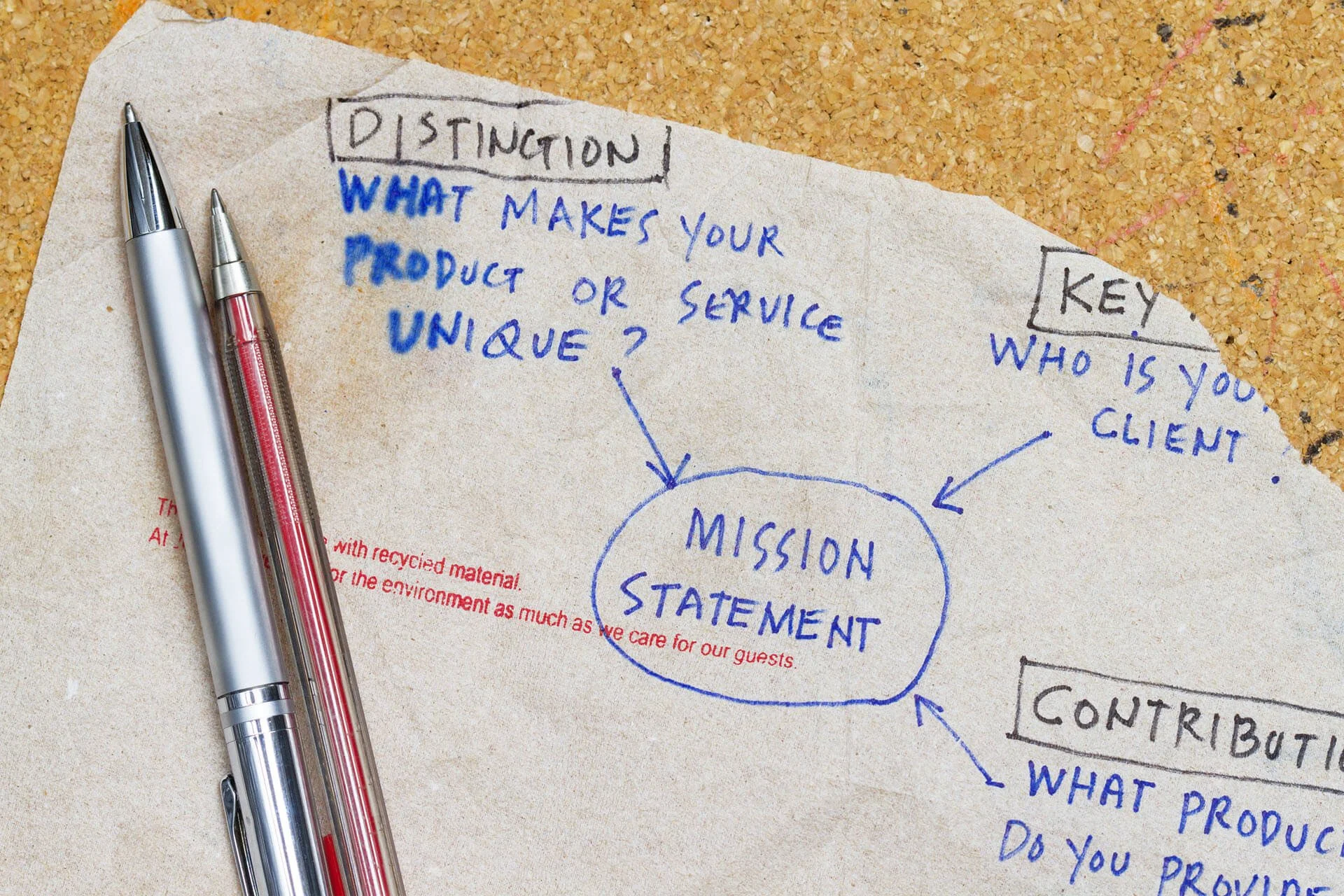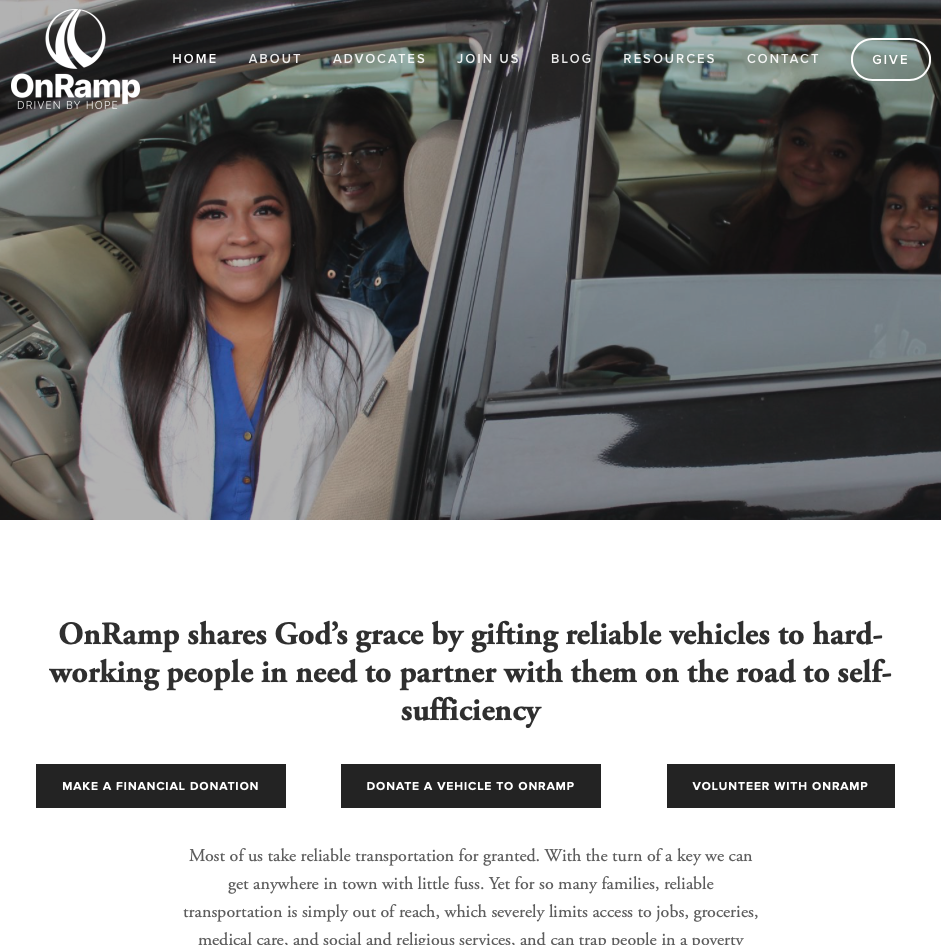It is no minor thing to modify an organization’s mission statement. This single sentence summary of our mandate shows up everywhere from our homepage to our IRS filing! But the time has come to refresh how we communicate the mission God has given to our organization. And while there are no major changes (we’re not jumping from cars to houses!), the changes we’ve made represent major growth in our understanding of this work, and we’re excited to share them with you.
The new mission statement seems, at first glance, very similar to the old. It reads,
“OnRamp shares God’s grace by gifting reliable vehicles to hard-working people in need to partner with them on the road to self-sufficiency.”
There are three crucial changes. First, we have moved God’s grace to the beginning to reflect our growing belief that this is what matters more than anything else. It was an appendage at the end in the old statement, not by choice but by inelegant word-smithing. It gave the impression that grace was an afterthought. But it is the most important thing we have to offer the world. Cars don’t last forever, but God’s grace does. Cars empower people, but grace transforms people. Grace is what helps our clients believe that they are loved by God more than they can imagine, and that belief can change everything. So we put that first.
Second, we realized that we were wrong in how we talked about our clients. In the previous statement, they were simply, “people in need.” That focuses only on what they lack. It completely misses what they bring to the table. They are HARD-WORKING men and women! They’ve already impressed their advocate enough to be nominated to our program. Then they impressed our interviewers and completed all their action steps before receiving a vehicle from us. They work hard to make it in this world, often with far fewer resources than most of us enjoy. Many work full-time jobs, or even multiple jobs at a time. Many raise young kids as a single parent. Some endure countless hours of dialysis or multiple miles of walking to get to a job or grocery store. They are, above all, hard-working people. So now we dignify our clients by leading with what they bring to the table. They are first “hard-working” and only then “in need.”
Finally, we added the phrase “to partner” towards the end. Previously, we said that we “help them on the road to self-sufficiency.” But “help” is too weak and too one-sided. It makes OnRamp the primary actor. But we are not. A car is only one small part of a family growing towards self-sufficiency. It’s an important part, but not nearly as important as the person’s own determination, growth, sacrifice, and, again, hard-work. We are merely partnering with them on their journey. We are a supporting actor at best; we are not the lead. And so our language now reflects that our clients are the heroes in their stories. We’re just there to partner with them along the way.
Words matter. We pray that the words we choose convey love and dignity to all of our clients and glory to our God.


